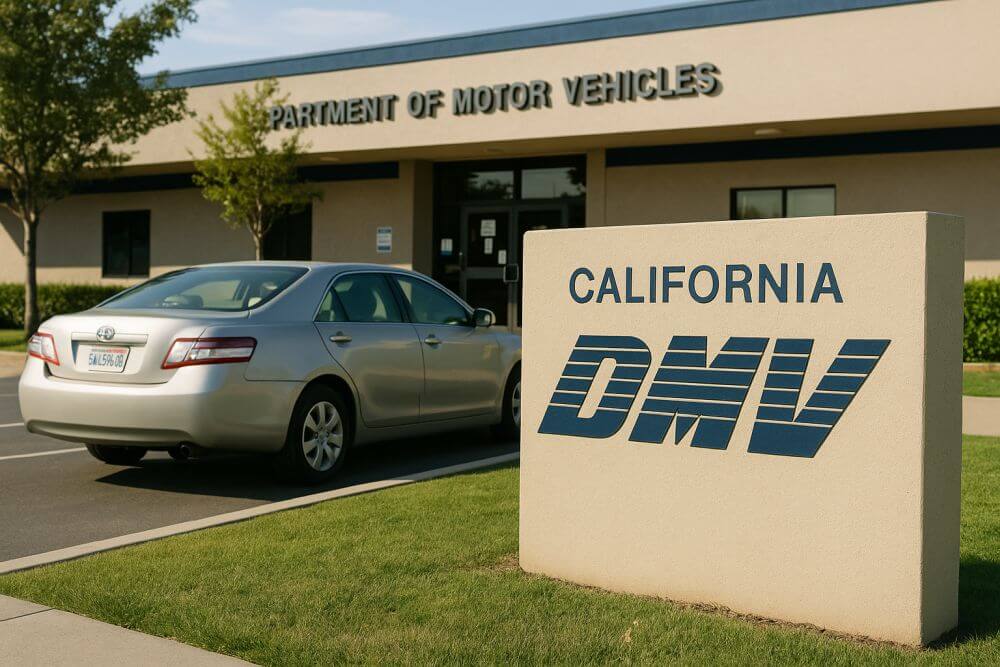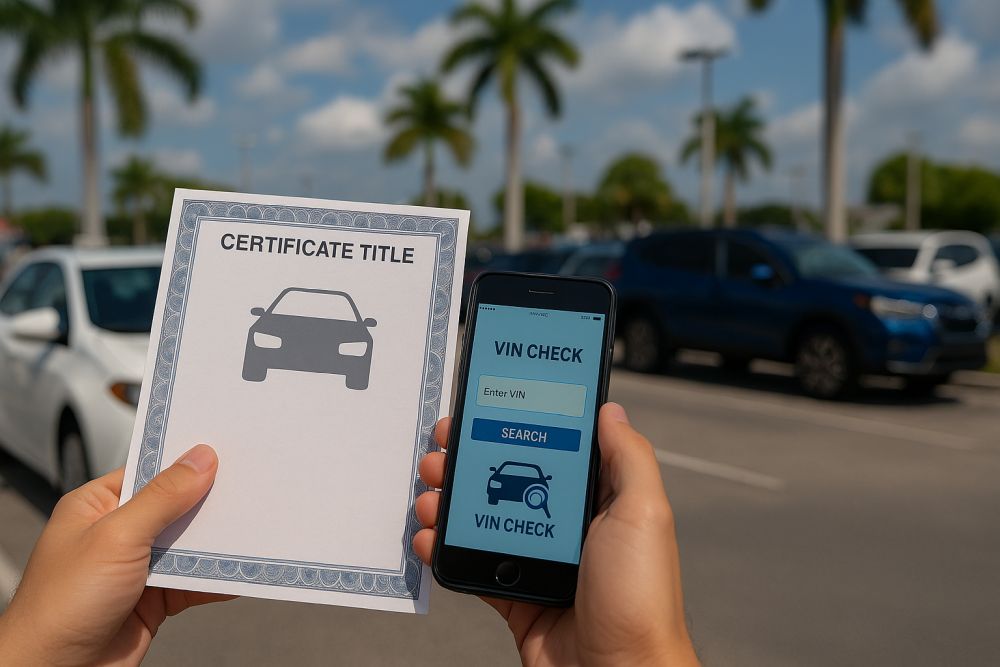Transferring a vehicle title in Texas is an essential part of buying or selling a car. This process officially establishes legal ownership and ensures that the vehicle’s records are up to date. Whether you’re purchasing a used car, selling your current vehicle, or even gifting it to someone else, understanding the Texas title transfer cost and requirements helps avoid delays and unexpected fees.

Why Title Transfers Matter
A title transfer not only verifies legal ownership but also protects both the buyer and seller from potential future disputes. It ensures that the state’s records accurately reflect the vehicle’s current owner and any associated obligations, such as taxes or fees. Before starting the transfer process, it’s also a good idea to verify vehicle details through a Texas license plate lookup or by using a VIN check. This can confirm ownership, reveal any title issues, and help identify undisclosed problems.
Texas Title Transfer Costs
As of the latest guidelines, the base fee for a title transfer in Texas is $33. However, there are several additional fees that may apply, depending on the situation:
- Sales tax: Typically 6.25% of the purchase price or the standard presumptive value, whichever is higher.
- Local county fees: Range from $10 to $15, depending on your county of residence.
- Emissions fee: If applicable, usually a small additional amount.
- Vehicle inspection fee: Required if the vehicle’s inspection is not current; fees vary but are generally around $7 for the state portion, plus possible emissions costs.
Always check with your local county tax office to confirm the most up-to-date fee structure for your area.
Step-by-Step Guide to Transferring a Vehicle Title in Texas
Step 1: Gather Required Documents
Before heading to your local tax office, make sure you have:
- The original signed title from the seller, including the completed odometer disclosure.
- A completed Application for Texas Title and/or Registration (Form 130-U).
- Proof of valid auto insurance meeting Texas minimum requirements.
- A valid government-issued ID.
- Payment for all fees and taxes.
Step 2: Visit Your Local County Tax Office
Bring all your documents to your county tax assessor-collector’s office. Some counties allow you to start the process online, but most title transfers must be finalized in person. If all parties involved can’t appear in person, a notarized Power of Attorney form is required to authorize another person to act on your behalf.
Step 3: Submit Documents and Pay Fees
Submit all documents and pay the necessary fees and taxes at the tax office. Once everything is verified and processed, you’ll receive a receipt and your application will be finalized.
Step 4: Receive Your New Title
After processing, your new title will be mailed to you, usually within 2–3 weeks. Be sure to keep your receipt as proof of the completed transfer until your new title arrives.
The Importance of VIN Decoding Before Title Transfer
Checking a vehicle’s VIN (Vehicle Identification Number) before transferring the title is a critical step. A VIN check can reveal vital information about the car’s history, such as:
- Previous ownership and title status (clean, salvage, rebuilt, etc.)
- Accident and damage history
- Odometer discrepancies
- Open recalls
- Theft records
Verifying this information ensures the vehicle is legitimate, protects you from buying a problematic car, and helps avoid complications during the transfer process. VinCheckPro offers a free VIN decoder that provides a comprehensive look into a vehicle’s history, empowering you to make a fully informed decision.
Final Thoughts
Transferring a vehicle title in Texas may seem complex at first, but with the right information, it’s a straightforward process. By understanding the costs involved and preparing all necessary documents ahead of time, you can avoid delays and additional expenses. Always run a VIN check before starting the title transfer to verify the vehicle’s background and protect yourself from potential issues. For a quick and detailed VIN check, visit VinCheckPro’s free VIN decoder and ensure your next car transaction is secure and transparent.
Frequently Asked Questions (FAQ)
How long does it take to transfer a title in Texas?
Typically, it takes about 20 business days to receive the new title in the mail after submitting all required documents and fees at the county tax office.
What happens if I don’t transfer the title within 30 days?
If you fail to transfer the title within 30 days of the sale, you may be subject to a late transfer penalty. The penalty is $25, plus an additional $25 for each month the transfer is late.
Do I need a vehicle inspection for a title transfer in Texas?
A vehicle inspection is required if the vehicle has not been inspected within the last 180 days. The inspection ensures that the vehicle meets Texas safety standards.
Can I transfer a title online in Texas?
While some counties offer online title transfer services, the process typically requires an in-person visit to the county tax office to submit documents and payment.
Is a bill of sale enough to prove ownership in Texas?
No, a bill of sale is not sufficient to prove ownership. The title must be properly signed over to the buyer to establish legal ownership.


